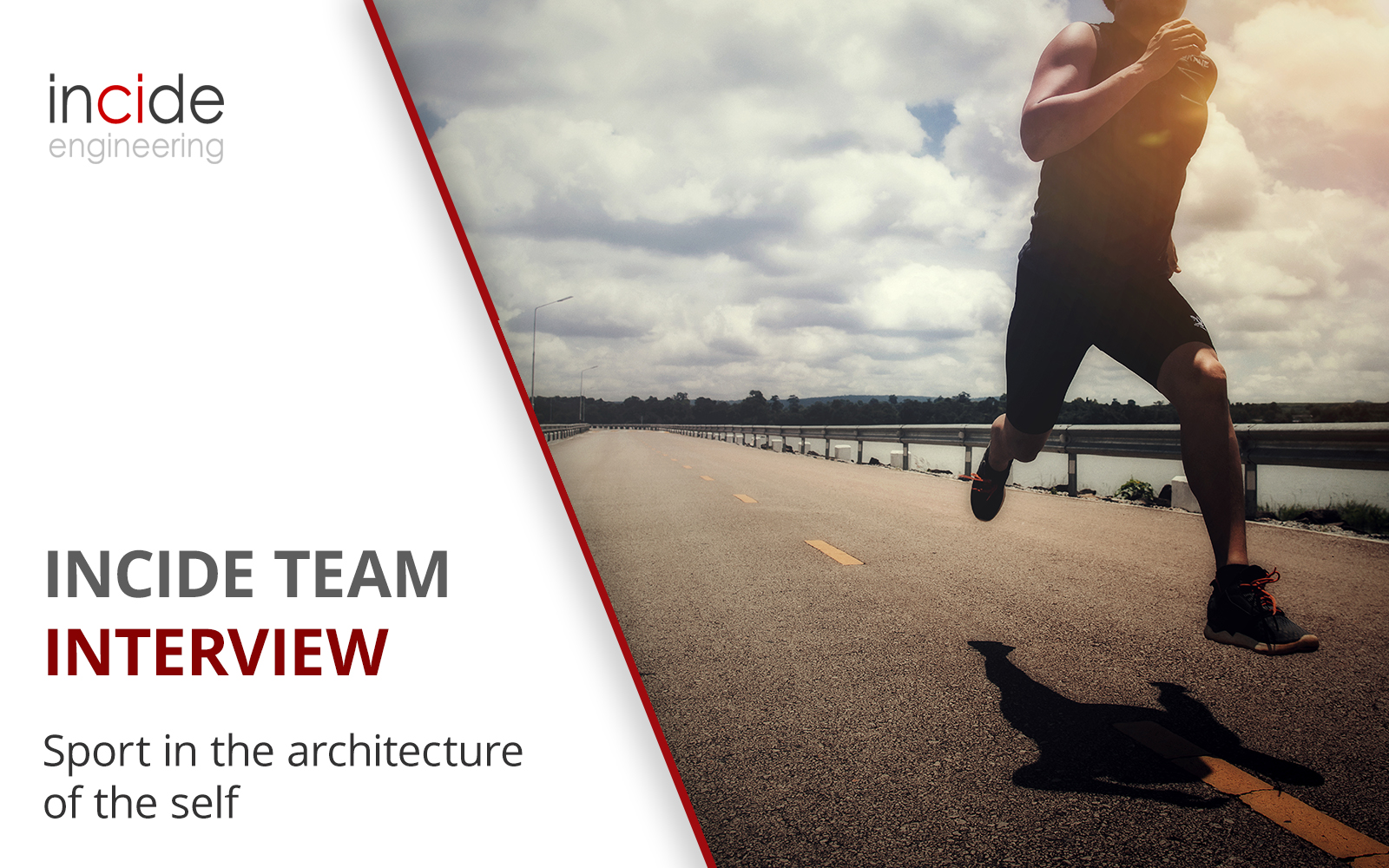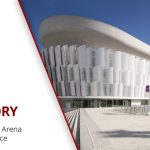From teaching to overcoming herself: Jodie Scopel, Building Engineer & BIM Coordinator in Incide Engineering, talks about her sporting life between growth, goals and self-determination, together with the design attention to space. The relationship with sport told by Damiano Curcuruto, Building Envelope Designer & Facade Engineer in Incide Engineering, between advantages and freedom.
Which sport do you play?
J: In my life I practiced various sports: swimming, women’s football and then moving on to Aerobics and Jazzercise, a discipline I taught for 9 years. Currently I work hard by attending the gym and therefore that world I knew a little less: the weight room. Over time I developed the desire to develop more and more muscle strength and therefore I left the activity of instructor to dedicate time to myself by training with movements that initially discourage us women, such as push-ups, pull-ups, squats with barbell, lifts, bench press and other strength exercises that initially I couldn’t complete, but which now give me more and more satisfaction!
D: I usually try to carve out 40/50 minutes of free time, at least 5 days a week, to perform a workout consisting of bodyweight exercises, alternatively a run in the open air or by bike.
What does sport mean for you?
J: For me it means carving out the space during the day to improve my physical performance but above all the mood: often starting is not easy, the desire is not always at the top but in 100% of cases, after training and post training I find great satisfaction in getting back into the game and raising that bar of physical effort which then allows an improvement in mental well-being and concentration, also eliminating stress! When I was a fitness instructor I tried to involve, motivate and help my students achieve their goals, but at the same time it was they themselves who gave me the strength to keep jumping and not give up. That experience gave me a lot and even today, even though I am no longer active as an instructor, when I start a training I feel like I get on that platform: I try to give my best and surpass myself.
D: I like to play sports in general: it means free time to think, time dedicated to myself, training, well-being, mental and physical balance.
Does sport have a positive influence on your professional life? Which?
J: When I train I have the opportunity to completely detach my mind from the thoughts of the day and this allows me to get back to work with greater freshness and therefore more efficiency! The energy that a workout gives me is maintained for hours, as well as the fact that we feel satisfied and therefore happy to have done something for ourselves. Furthermore, sport understood as teamwork improves the ability to relate, to compare oneself, to help and let oneself be helped and to achieve a common goal. Sport intended as individual work, on the other hand, certainly increases self-affirmation, autonomous growth, work on oneself and the ability to manage alone even in the most intricate situations. And why not, a little healthy competition in sport as in work certainly has the effect of always aiming for a higher goal with constant growth, without settling down as a result.
D: I believe that sport has positive influences in my professional life. Being free time, during sports you can get away from everyday difficulties for a moment and have a way of thinking: about how to solve a problem, about other people to improve relationships or to organize your day. This allows you to reconcile all the commitments in the best possible way – work and family. So sport in my opinion gives you an “advantage”. Practicing sports also gives you a certain psycho-physical balance and, in my opinion, makes you more inclined to have an enterprising attitude.
Are there any similarities between your work and your sport?
J: Definitely work by objectives: it means setting goals periodically and organizing work (sports and professional) on the basis of results to be achieved in the short and long term. When we accept a goal we are pushed to experiment with new strategies, to seek new solutions that allow us to develop new skills and, at the same time, to refine existing skills … regardless of the difficulties we will encounter, the efforts we will make or the fact that we will not see immediately the desired results. I believe that no lover of physical training does it only with the pleasure of doing it: sometimes it’s very hard, complicated, you have to believe in yourself and be convinced that you can lift that extra weight or be able to overcome that obstacle, even if maybe in reality this is not the case. And this also happens in work: you have the best performance when self-esteem is high and when self-confidence maintains good levels, it can’t be said that work is always and only passion, sometimes you have to bear tough challenges. and try to get up quickly if mistakes are made.
D: The affinities are resourcefulness and passion. Being an engineer requires a lot of resourcefulness. Sometimes there are problems, but we can be the engine to solve them. At work, the problems are those of others and to be able to solve them in an acceptable time, so that these problems do not become yours too, you need the right attitude which, added to passion and perseverance, as in sport, brings good results.
Did you see the Olympics and / or Paralympics? What struck you?
J: I was excited and also moved to see unexpected victories, for example the gold of the 100m or the high jump. I am always admired by the performances of others, it fascinates me to see and learn not only the sporting history, but also the private life of athletes and what they had to overcome to get to where they are. In the case of the Paralympics, even more: they are certainly positive examples for society and for each of us who, in small or large, tries to overcome the challenges and pressures that the outside world often presents.
D: My 4-year-old daughter, who watched the women’s long jump and identified with the athlete thinking she could jump more than her. To get results like that, it takes a lot of determination. Athletes participating in the Olympics are a great example of life for all.
Has the frequent use of sports halls and/or gyms helped to better define the spaces designed for sports facilities?
J: Attending but above all living these environments has certainly made me aware of the spatiality that these places need, the arrangement and above all the correct exposure of the environments. I always look carefully at how they are made from the architectural, structural and plant engineering point of view. Often, especially when I’m doing sit-ups or stretching, I get lost looking at the implants running up the ceiling trying to figure out how they were designed. Working in Incide as designers mostly of large and industrial buildings we are placed in front of these types of buildings, both private and public: sports halls, swimming pools, gyms, training environments, including military ones, and every time we try to implement a design that is attentive to the user. and also to the guest.
D: I don’t hink that this has led to an essential improvement in the general evaluation of the project, but it certainly may contributed to improve some details or to taking care of the design in more detail, also stimulating some curiosity.

